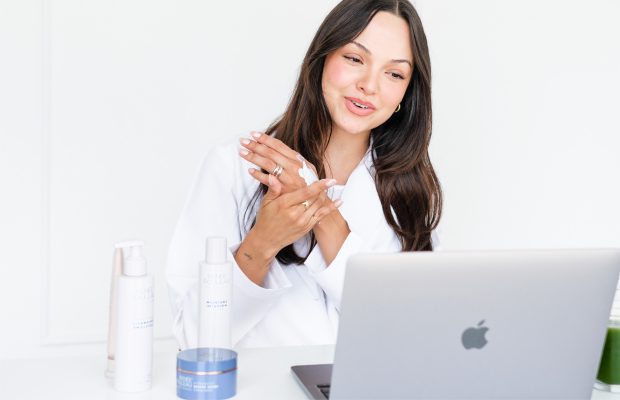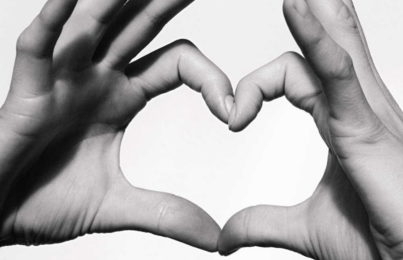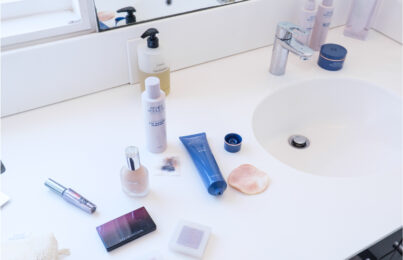Most people know that dermatologists and estheticians aren’t the same, but they don’t know what exactly makes them different. And, what’s more, they’re unsure of which one they should see to address their specific skin concerns.
In this post, I’ll take you through the biggest differences between dermatologists and estheticians, explaining how their approaches to treating skin might differ and why you can benefit from both! (Keep in mind that I’ve been an esthetician for over 30 years, so I know that side of the skincare industry in and out. Perhaps my information is a bit biased, but I’m only sharing what I know to be true based on my experience.)
The Difference Between Dermatologists and Estheticians
The main difference between a dermatologist and an esthetician is that a dermatologist is a medical doctor. They’re trained to treat a variety of skin diseases and conditions, and they can prescribe medications in the form of topical and oral drugs. An esthetician, on the other hand, offers non-prescription solutions—things like facials, skincare products, and nutritional advice.
Here are three major differences:
- The licensing requirements are different. An esthetician is in school for anywhere from three to nine months (depending on the state) whereas a doctor is in school studying for years.
- A dermatologist can write prescriptions. An esthetician, since they’re not a medical professional, can’t.
- A dermatologist can perform injections like Botox and fillers. An esthetician can’t under their license.
- Both dermatologists and estheticians can perform professional treatments such as chemical peels. Generally speaking, though, dermatologists can perform more aggressive treatments than estheticians due to licensing and the fact that they’re being performed under the supervision of a doctor.
Note: Not all dermatologists or estheticians are the same. This is generalized information based on what I know to be true.
A Dermatologist Can Prescribe Medication
There are times when the use of prescription medication is necessary to treat certain skin conditions. Chronic rosacea, severe breakouts, skin rashes, and allergies are all examples of conditions that are often best treated with medication. In these cases, I recommend seeing a dermatologist, which is why I’ve referred some of my clients to dermatologists in the past.
With that said, you may still benefit from seeing an esthetician, too. Especially since, once you go off of certain prescription medications, the condition can come back. It can be helpful to play detective (an esthetician can help you do that) to get to the root of the problem and to manage it long-term using the appropriate skincare routine.
An Esthetician Will Spend More Time With You Than a Dermatologist
If you’re scheduling a professional treatment with an esthetician, such as a facial, your face-to-face time will usually be around 75-90 minutes. By contrast, face-to-face time with a dermatologist is usually anywhere from 10-20 minutes. Time is definitely on your side with an esthetician. You’ll have plenty of time to share your skin history and concerns. From there, an esthetician can piece together a personalized routine and unique approach for desired results.
An Esthetician Will Be More Knowledgeable About Your Skincare Routine
As one of my dermatologist colleagues said, “I was trained in treating diseases of the skin. When it comes to which products are best, what my patient’s skincare routine should look like, and when to change up their products, I refer them to you.”
Estheticians are very familiar with skincare ingredients and products. They can guide you towards the right products to use and at what time, teaching you how to enhance your skin at home. They can also teach you which products to use to help manage the side effects of certain medications a dermatologist might prescribe. A good esthetician can go into great detail and provide you with all the information you need to achieve your desired result.
For example, I had a client whose skin was dry, red, and inflamed. She thought she might have rosacea, so she was considering seeing a dermatologist. However, she consulted me first. During our conversation, I discovered she was using a harsh, high-foaming cleanser followed by an organic moisturizer that was loaded with essential oils. The cleanser was stripping her skin and damaging her moisture barrier. Then, the essential oils, which are known to cause issues if used in high concentrations, were creating irritation.
The combination was setting off an inflammation response. It wasn’t rosacea at all! Since she was a Skin Type 9, I set her up with a gentle skincare routine. I followed up with her regularly, and within a month, her redness had calmed down significantly.
Both Dermatologists and Estheticians Can Offer Effective Acne Solutions
Make no mistake: you can benefit from seeing both a dermatologist and an esthetician if you’re struggling with breakouts. While their treatment approaches will differ, they can each offer effective solutions. For a dermatologist, that might mean prescription medication or cortisone injections for cystic breakouts. For estheticians, that might mean product recommendations and deep pore-cleaning facials.
As an esthetician, trust me when I say that deep pore-cleaning facials can make an incredible improvement in breakout-prone skin types. Manually extracting pore blockages that lead to bumps and breakouts will help make the skin feel smooth and calm, and this needs to happen over the course of multiple sessions. Estheticians are the ones that perform facials, but oftentimes, they work within a dermatologist’s office.
The Bottom Line
Both dermatologists and estheticians can offer solutions for your skin concerns. There is no right or wrong answer when it comes to which one you should see. Even though I’m an esthetician, and I’ve worked with skin for over 30 years, I regularly see a dermatologist for skin checks and more! As I said before, no matter who you are or what skin concerns you have, you can benefit from both! In fact, seeing both a dermatologist and an esthetician can complement your skin based on the skillset each provides.
Next, find out the best chemical peel for you, according to your skin type.
Celebrity Esthetician & Skincare Expert
As an esthetician trained in cosmetic chemistry, Renée Rouleau has spent 35 years researching skin, educating her audience, and building an award-winning line of products. Her hands-on experience as an esthetician and trusted skin care expert has created a real-world solution — products that are formulated for nine different types of skin so your face will get exactly what it needs to look and feel its best. Trusted by celebrities, editors, bloggers, and skincare obsessives around the globe, her vast real-world knowledge and constant research are why Marie Claire calls her “the most passionate skin practitioner we know.”




Comments:
The post is likely to provide valuable insights into the strengths and limitations of each profession and help readers make informed decisions about which professional to seek out for their skin concerns.
Posted By: Skin Dermatologist |
I saw a dermatologist first to get rid of my unbareable hormonal cystic acne using medication, worked really well and quick. After 6 months with a dermatologist I started seeing an esthetician to perfect my skin such as scarring, texture, to give me glow and ensure graceful aging. A dermatologist is less expensive if you have insurance so I’d start there, but then get an esthetician so you can get a good home routine going to improve results. My esthetician even had makeup suggestions based on my skin type, told me which foundation had the best ingredients for my skin, told me which foods were causing dark circles under my eyes, advised me on what detergents to use on my linens and how often to change. She even told me what my undertones were so I could get a better matching concealer and foundation, hot happening at the dermatologist for sure. Both are very important to maintaining great skin.
Posted By: Brittney Edwards |
I have clogged pores on my T-zone area, I don’t know who to see a dermatologist or an esthetician. I’ve tried many things to clear them but nothing has worked. So who do I go see a dermatologist or esthetician, what would they do to clear the pores for example chemical peel, extraction, ect.
Posted By: Kelly |
Generally that falls under an esthetician’s area of expertise.
Posted By: Renée Rouleau |
Hi I keep getting this big hard bump under my skin. You cant really see it but if Im under a light source you can see a red bump. I started having this type of acne when I was 16 y/o. Help its so frustrating i dont know how to get rid of it!
Posted By: lily |
Read my posts about cystic breakouts to see if this sounds like what you’re experiencing.
Posted By: Renée Rouleau |
So I keep breaking out on the right side of my chin? Why this area only? I’ll have a few breakouts – they get better & then I’ll get more ALWAYS in the same area??? (It’s not the side I hold my phone on) Thoughts?!
Posted By: Kelly Payne |
Hi Kelly, Frustrating, I know! Read this post for my tips for breakouts that keep occurring in the same place.
Posted By: Renée Rouleau |
Hi Renee, I am at a loss here as to what to do next.
I have been to see several doctors and just recently a dermatologist in regards to what is happening under my skin. This issue has been going on for over 18mths now, but nobody seems to be worried about it except myself. My partner has filmed foreign objects coming out from the crease in my chin which look to be like some sort of metal shavings. they may or may not be but that is what they look like especially in the sunlight. Puss seems to just pour out of my pours, up and over my face and have now started on my arms and chest with big wound like holes that will not clear up.
The first couple of doctors I went to did tests (swabs, blood, urine) and came back with it being a fungal infection, they treated it, it made it worst. The next doctor said it was a staff infection, he treated it, it looked like it was starting to clear but then it came back with a vengeance! So eventually I was booked in to see a dermatologist who diagnosed, without doing any tests, that it is a mixture of both Seborrhoeic Dermatitis and a genetic defect. I am not sure if the stuff he has given me to help with both the pain and bringing whatever is deep down in the pours to the surface has been helping or not but I am still having stuff pump out of my face like no tomorrow. as you can imagine this is damaging to one’s confidence due to this “thing” being on my face.
I feel as if I have been misdiagnosed (a gut feeling) and that this could very well be something alot more serious however I am at a loss as to where to go from here.
Who else is there to see? do you have any suggestions as to what this may be?
Thanks Renee
Posted By: Foreign objects |
Wow, I honestly have never heard or scene something like that at all. I’m so sorry that you’re struggling with this. I do know, however, that sometimes people have to see up to 10 dermatologists to find one that finally has had experience with certain rare skin conditions.
Posted By: Renée Rouleau |
Hi my name is i had the same issue it sounds like go to a dermatologist it sounds a lot like hidrtenitis suppoativa
Posted By: SARA CORN |
When in doubt seeing a doctor is always the safest choice!
Posted By: Renée Rouleau |
Please help me I have pimples and marks as well as uneven skin tone all my friends face are really clear please help me
Posted By: tashmika |
I suggest you take our Skin Type Quiz to get products recommended and you can certainly read all of my free skin care advice on how to treat blemishes here. You would also benefit from seeing a trusted skin care professional.
Posted By: Renée Rouleau |
Hello, I am hoping you can help me, I am 22, I have concerns of my skins texture and pigment. I have the little skin bumps under my eyes and little veins coming to the surface around my cheek aria. Some are blue and some are a reddish purple. I have redness on my cheeks and above my eyebrows constantly. My skin is very blotchy looking. I have always cleansed my skin daily and mosturized after but I fear I am damaging my skin because the issues that I listed above are getting worse. I went into my local Sephora and asked them about my odd texture under my eyes, they told me it was from dryness so I purchased a under eye moisturizer. I have been using that for a few months now and I haven’t seen a difference in my under eye skin pigmentation. Hopefully you can tell me something I can do to maybe change my skin for the better. I’m in desperate need of some help!
Posted By: Kayla |
I would suggest you schedule a virtual consultation with one of our estheticians. It sounds like you need professional advice, that’s not just from a sales person. It sounds like you need a good skin care routine to reduce the blotchiness. You can read more about the skin consultations here.
Posted By: Renée Rouleau |